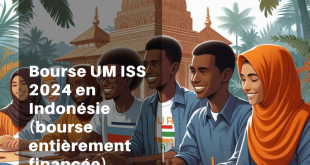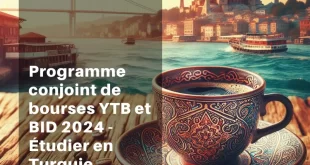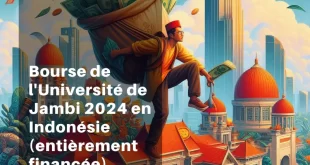Presentation INRAE
The National Research Institute for Agriculture, Food and the Environment (INRAE) is a public research establishment bringing together a working community of 12,000 people, with 272 research , service and experimental units , located in 18 centers throughout France. INRAE is one of the very first world leaders in agricultural and food sciences, in plant and animal sciences. Its research aims to build solutions for multi-performance agriculture, quality food and sustainable management of resources and ecosystems.
Work environment, missions and activities
In Southern Europe, the climatic trends observed and future projections suggest a “Mediterraneanization” of the climate: decrease in precipitation, sharp rise in summer temperatures, more frequent heat waves… In France, restrictions on water withdrawal are have recently multiplied due to the occurrence of droughts affecting a large part of the territory. These changes and events generally raise questions about the compatibility between water availability during low water periods and the needs of different uses.
In this context, and while many French basins are already in quantitative imbalance, it is proposed to the various stakeholders to develop territorial water management projects1 (PTGE). The PTGE impose, to reduce the quantitative imbalances at the scale of the watersheds and to adapt to climate change, to implement actions of sobriety, actions based on nature and, if appropriate, actions of storage or transfer. of resource. These actions must be developed within a framework of consultation between all the stakeholders and the selected action program must be the subject of a socio-economic analysis based itself on analyzes of various kinds (hydrological, hydrogeological , biological, agronomic…).
Today, a few PTGEs have been approved (by the prefects) and are in the implementation phase, but most are being drawn up with more or less difficulty, with different methods and action logics and relatively unknown. It is in this context that your mission takes place.
You will be more particularly in charge of: qualifying the logic of action of central actors of the PTGE (water agencies and Regions at least), in particular under their financial support, to judge the relevance of storage actions or transfer of resources. The objective is to acquire knowledge on the diversity of the ways of doing things of these actors in order to pass judgment on the relative advantages and disadvantages of these developments. The entry key to qualifying these logics will consist of (i) looking at the place of the economic analysis normally required to approve a PTGE, (ii) identifying the place given to scientific knowledge beyond economics (hydrology , agronomy, ecology, sociology, political science, etc.), (iii) identify the data used (physical, agricultural,
Particular attention should be paid to the analysis of (i) the consideration of climate change in this process and (ii) the timing of the inclusion of the economic approach in the process of 1 Instruction of 7 May 2019
on territorial water management projects (PTGE) and addendum of 17 January 2023 to the instruction (NOR: TREL2236979J)
consultation: from the start or at the end of the process and for what purpose(s) (choice of options, sizing of an option, arguments on an option, pre-feasibility, etc.).
This analysis will be deployed in the 3 major basins concentrating the most PTGE (Loire-Bretagne, Rhône-Méditerranée-Corse and Adour-Garonne) and possibly in the Seine-Normandy basin. By way of comparison, a look should also be taken at the way things are done in Spain at least and at one or two other European countries.
You will have to carry out the following tasks:
– Carry out a summary literature review on the diversity of action logics implemented in terms of quantitative water management and more particularly in terms of increasing the supply or substitution of resources;
– Develop an interview grid intended to qualify the logic of actions;
– Carry out face-to-face interviews with representatives of the Water Agencies and Regions selected (at least two interviews with the Agencies);
– Proceed to a synthesis of the logics of actions and financial intervention of the actors surveyed;
– Contribute to the writing of a scientific article and a book chapter2 (book in progress;
– Contribute to scientific animation with researchers from the various units concerned by the subject (Riverly, SAS, LISAH, HYCAR, GESTE, etc.) within the AQUA Department of INRAE.
You will be welcomed into the UMR Water Management, Actors, Uses, which brings together 90 permanent researchers and engineers and around fifty doctoral and post-doctoral students from all disciplines working together on issues of integrated and adaptive water management. ‘water. The UMR conducts research on the trajectories of socio-hydrosystems and their regulation and contributes to the design and evaluation of tools facilitating the implementation of innovative public policies concerning water. Although hosted within UMR GEAU, you will be in close contact with other INRAE Units (Riverly, SAS, LISAH, HYCAR, GESTE, etc.) and with the scientific management of the AQUA department. Travel is to be expected for this purpose.
References:
– “Economic and financial analysis of Territorial Projects for Water Management (PTGE) with an agricultural component” http://www.g-eau.fr/index.php/fr/productions/methodes-et- tools/item/1315-economic-analysis-of-territorial-projects-for-water-management-ptge-with-agricultural-component – Pierre-Etienne Bisch, Louis Hubert, Florence
Denier -Pasquier and Luc Servant (2018). Report of the expertise unit relating to the quantitative management of water to deal with episodes of drought. General Council for the Environment and Sustainable Development – General Council for Food, Agriculture and Rural Areas. https://www.vie-publique.fr/rapport/37685-cellule-dexpertise-relative-la-gestion-quantitative-de-leau-pour-fai
– Guide for the development and implementation of Territorial Projects for Water Management intended for project leaders and stakeholders in the process. To be published
– Conclusions of the Varenne agricole on water and climate change: https://agriculture.gouv.fr/conclusions-du-varenne-agricole-de-leau-et-de-ladaptation-au-changement-climatique# :~:text=On%20Tuesday%201st%20f%C3%A9February,%C3%89tat%20load%C3%A9th%20de%20la%20Biodiversit%C3%A9.
Training and skills sought
Recommended training: PhD in economics preferred
Knowledge required: Economic analysis of public policies and projects
Appreciated experience: Agronomy, Hydrology, Quantitative water management, Irrigation
Required skills: Organization and autonomy in work. Good synthesis and communication skills. Taste for interdisciplinarity.
Your quality of life at INRAE
By joining INRAE, you benefit (depending on the type of contract and its duration):
– up to 30 days of leave + 15 RTT per year (for a full-time job)
– support for parenthood : CESU childcare, leisure benefits;
– skills development schemes: training , career guidance advice ;
– social support : advice and listening, social assistance and loans;
– holiday and leisure services : holiday vouchers, accommodation at preferential rates;
– sports and cultural activities ;
– collective catering.
How to apply
Job Features
| Job Category | Postdoctoral |
 medjouel.com Study Non Stop
medjouel.com Study Non Stop



